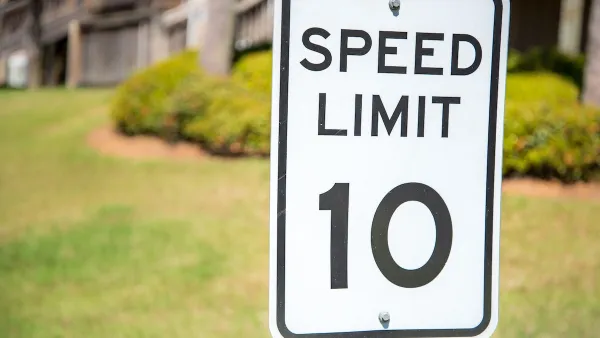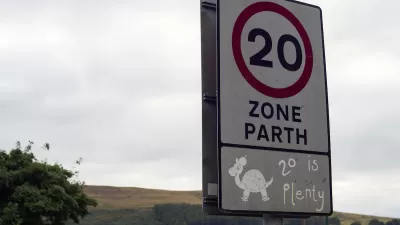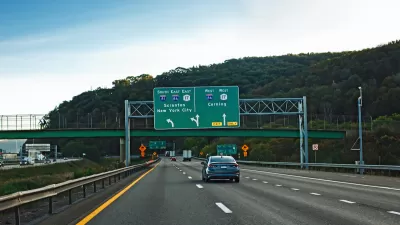Reducing the speed limit to 50 mph, say researchers, would create the tipping point where taking transit or modes other than driving will become more attractive and therefore save CO2 emissions.
Also, it turns out that driving slower reduces emissions.
From Wired: "The faster you go, the more fuel you burn because wind resistance increases exponentially. Lowering your speed by 5 mph when traveling at 35 to 45 mph will boost fuel economy as much as 10 percent (.pdf), according to a report the General Accounting Office prepared in 2008."
Treehugger takes the Wired article a step further, presenting six reasons why slowing down is beneficial. For one:
"It could save a lot of fuel. Some estimates indicate up to 5%; In 1983, by which time many people were ignoring it, it saved 2.5 billion gallons of gasoline and diesel, or 2.2% of the total fuel used. Oil was a horrible $ 20 per barrel. Wired notes that "The Department of Energy noted in 2008 that lowering the national speed limit to 55 mph would save 175,000 to 275,000 barrels of oil daily."
FULL STORY: Slow Down and Spare the Planet

Planetizen Federal Action Tracker
A weekly monitor of how Trump’s orders and actions are impacting planners and planning in America.

Maui's Vacation Rental Debate Turns Ugly
Verbal attacks, misinformation campaigns and fistfights plague a high-stakes debate to convert thousands of vacation rentals into long-term housing.

San Francisco Suspends Traffic Calming Amidst Record Deaths
Citing “a challenging fiscal landscape,” the city will cease the program on the heels of 42 traffic deaths, including 24 pedestrians.

Defunct Pittsburgh Power Plant to Become Residential Tower
A decommissioned steam heat plant will be redeveloped into almost 100 affordable housing units.

Trump Prompts Restructuring of Transportation Research Board in “Unprecedented Overreach”
The TRB has eliminated more than half of its committees including those focused on climate, equity, and cities.

Amtrak Rolls Out New Orleans to Alabama “Mardi Gras” Train
The new service will operate morning and evening departures between Mobile and New Orleans.
Urban Design for Planners 1: Software Tools
This six-course series explores essential urban design concepts using open source software and equips planners with the tools they need to participate fully in the urban design process.
Planning for Universal Design
Learn the tools for implementing Universal Design in planning regulations.
Heyer Gruel & Associates PA
JM Goldson LLC
Custer County Colorado
City of Camden Redevelopment Agency
City of Astoria
Transportation Research & Education Center (TREC) at Portland State University
Jefferson Parish Government
Camden Redevelopment Agency
City of Claremont





























